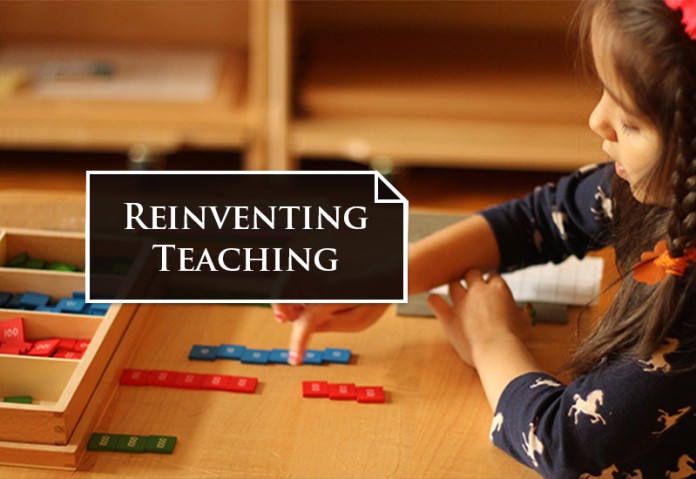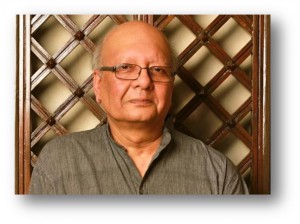Pedagogies become obsolete when they continue to focus on ‘what’ they teach rather than ‘how’. Indian education has suffered for decades on this score because the purpose of education has never envisaged fostering curiosity and creativity as being critical to education but in knowing facts and information. Reinventing Teaching We teach our kids to memorize but never to understand.
Reforming education requires deciding what education is for. I believe that critiquing the way we teach is dependent entirely on knowing ‘why we teach’. A time has come when this ‘why’ itself needs to be questioned and reinvented. In other words, what we need is not doing the ‘why’ better but in finding an entirely different ‘why’. This is because the old why is no longer relevant. Consequently, the very purpose of education needs to be rethought. Only then would education reform be revolutionized.

Important Announcement – EasyShiksha has now started Online Internship Program “Ab India Sikhega Ghar Se”

To achieve this, we need to start with the teachers. The shift in mindset that they need to adjust to is that modern technology has provided students and indeed, everyone with exceptional information at the touch of a button. Rather than feel upset with this development, which is unfortunately the case at present with most teachers, they need to learn how they might recraft their pedagogy from information dissemination to learning and processing of information.
If we fail to do this, we would continue to harbour irrelevant teachers and consequently, an archaic education system.
This imperative shift in pedagogy needs to recognize that today’s market place requires from its employees creative and critical thinking and in taking complex decisions. Indeed, even classrooms have started changing. I am not speaking only of the introduction of smart boards but the way modern classrooms are currently designed. Mobile and adjustable tables and seats have replaced the earlier fixed seats where students sat in a row and the teacher was the sage on the stage. Today’s classrooms are geared towards a teamwork and collaborative approach that is aimed at understanding problems before solving them. Students discuss with each other and the teacher acts as the facilitator.
This requires that education respond to dynamic needs because it is a service that is offered to society. It needs to constantly evolve if it is to provide what changing societies require. Yet, for decades, while India has dramatically changed, our education system has remained more or less static. Efforts have been made to tinker with what already exists rather than envisage how it be changed in its entirety. What we need, in other words, is a revolution in education and not just reform.
One of India’s grand challenges is education. As our population grows, the aspiration for a better life would extend from urban to rural India. Indeed, it may well be argued that to empower India, education is the key. Without education, populations would continue to be subjugated and impoverished. Rural India would continue to live under a feudal scourge where the horrific nexus of local politicians, gangsters and the bureaucracy continues as contemporary reality. Rapid urbanization would see migration of unskilled labour into cities and huge infrastructural demand would see their employment perpetuating substandard construction. Business and industry would never be 21st century because their workforce would be 19th century.
We are on the cusp of facing disaster unless we revolutionize our education system. This needs to be a national imperative.
Top Courses in Software Engineering
About Author
Inaugural India Country Director, UNSW
Mr. Amit Dasgupta is the inaugural India Country Director for UNSW. Based in New Delhi, Mr. Dasgupta’s role is to strengthen and deepen UNSW’s ties with India across education, knowledge exchange and research.
Prior to UNSW, Mr. Dasgupta was based in Mumbai as the Head of the SP Jain School of Management’s new campus.
Mr. Dasgupta has had an illustrious diplomatic career and has served in a range of overseas postings including- India’s Consul General in Sydney (2009-12), Ambassador to the Philippines as well as other stints serving in Germany, Belgium, Egypt and Nepal. He also served as theMinistry of External Affairs’ Director of Finance and was the first head of the Ministry’sPublicDiplomacy Division. Amit Dasgupta’s association with UNSW stems from the time he was India’s Consul General in Sydney (2009-12). He was instrumental in the installation of the Mahatma Gandhi bust and the creation of UNSW’s signature Annual Gandhi Oration. NSW Community Relations Commission awarded him a medal for his exemplary efforts to promote harmony in Sydney. He has authored and edited a number of books, including The House and other stories, Lessons from Ruslana, The lost Fragrance, Indian by Choice and India for a Billion Reasons.
——————————————————————————————————————————————-
Sign up / Register with EasyShiksha or Download the app and get free online education account. Get latest Jobs Notification & Current Affairs. You can access more than 50 free online courses, various computer and SSC Bank Railway test series and find your career options. You can Sign up with Facebook
Empower your team. Lead the industry
Get a subscription to a library of online courses and digital learning tools for your organization with EasyShiksha
Request NowQ. Are EasyShiksha's internships truly free?
Yes, all internships offered by EasyShiksha are completely free of charge.
Q. How can I apply for an internship with EasyShiksha?
You can apply by visiting our website, browsing available internships, and following the application instructions provided.
Q. What types of internships are available through EasyShiksha?
EasyShiksha offers a wide range of internships across technology, business, marketing, healthcare, and more. Opportunities are continuously updated.
Q. Will I receive a certificate upon completing an internship?
Yes, upon successful completion, you will receive a certificate recognizing your participation and achievements.
Q. Are EasyShiksha's internship certificates recognized by universities and employers?
Yes, the certificates are recognized by universities, colleges, and employers worldwide.
Q. Is the download of certificates free or paid?
Access to internships and courses is free, but there is a small fee to download certificates, covering administrative costs.
Q. When can I start the course?
You can choose any course and start immediately without delay.
Q. What are the course and session timings?
These are fully online courses. You can learn at any time and pace. We recommend following a routine, but it depends on your schedule.
Q. What will happen when my course is over?
After completion, you will have lifetime access to the course for future reference.
Q. Can I download the notes and study material?
Yes, you can access and download course materials and have lifetime access for future reference.
Q. What software/tools would be needed for the course?
All necessary software/tools will be shared during the training as needed.
Q. I’m unable to make a payment. What should I do?
Try using a different card or account. If the problem persists, email us at info@easyshiksha.com.
Q. Do I get the certificate in hard copy?
No, only a soft copy is provided, which can be downloaded and printed if required.
Q. The payment got deducted but shows “failed”. What to do?
Technical errors may cause this. The deducted amount will be returned to your account in 7-10 working days.
Q. Payment was successful but dashboard shows ‘Buy Now’?
Sometimes payment reflection is delayed. If it takes longer than 30 minutes, email info@easyshiksha.com with the payment screenshot.
Q. What is the refund policy?
If you face technical issues, you can request a refund. No refunds are issued once the certificate has been generated.
Q. Can I enroll in a single course?
Yes, select the course of interest, fill in the details, make payment, and start learning. You will also earn a certificate.
Q. My questions are not listed above. I need further help.
Contact us at info@easyshiksha.com for further assistance.
ALSO READ: Directorate-of-education-delhi-tgt-recruitment-exam-pattern-and
Get Course: Hatha-yoga-made-easy




































































